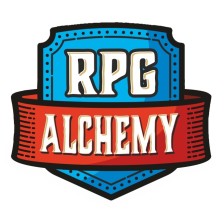For the past year and half or so I’ve been running Numenera, Dungeon World, and now 5th Edition Dungeons & Dragons. All three of these games are fast and flowing and play smoother than a lot of other games, especially earlier incarnations of D&D. There are a few reasons for this but in my opinion the number one reason is the lack of modifiers that impact dice rolls.
Until playing these games, I never realized how much time and energy was being wasted every time a player went to roll the dice. Not only did the character have several modifiers to add to the roll (feats, equipment, stats, buff-spells, etc.), but then the situational modifiers had to also be added (environment, flanking, enemy auras, conditions, etc.). Making things even worse all of these modifiers could change from turn to turn!
In the Numenera core book Monte Cook talks about “false precision” and its affect on games. In a nutshell, false precision is the tendency for RPG’s to rely heavily on lots of modifiers to “accurately” reflect realistic situations and circumstance but ultimately just become a waste of time nickel-and-diming numbers. In Dungeon World the only thing ever added to your 2d6 roll is an ability modifier. One of the big reasons for this is that in DW your roll doesn’t reflect success or failure so much as it reflects the price of success or failure.
The new edition of D&D continues this trend with the Advantage/Disadvantage mechanic. Basically only something that has the chance of seriously impacting your odds of success can grant you Advantage or Disadvantage and having both simply cancels each out. Not only does this greatly speed up gameplay, allowing the focus to be placed on the storytelling aspects of the game, but it also pulls the rug out from under power-gaming character builds. Games that rely on lots of numeric modifiers are just telling players to find as many +1’s as possible, hopefully enough that the dice roll doesn’t really matter anymore! With 5E on the other hand you’re only going to add your ability modifier (every time) and your proficiency bonus if you’re doing something you’re proficient in. That’s it.
I love 5th Edition’s approach. Sure, my players are frequently looking for Advantage (instead of a +1) but the kind of things that grant it have a more “roleplaying” feel than a meta-game feel. Additionally there is never a need to look for multiple “Advantages”, you have it or you don’t. And best of all, neither Advantage nor Disadvantage mean that you have a guarantee of success or failure (unlike a really high modifier)! This keeps the math tight and the numbers extremely manageable. Even with Advantage rolling a 3 and 5 is most likely still going to result in a failure.
The only downside with this is the difficulty I’ve seen veteran gamers have with changing their paradigm. So many games throughout the history of roleplaying have been completely dependent on modifiers. Players and GM’s alike are so used to them that it can be hard to even consider a game not having them. I’ve also heard several people make the argument that modifiers “reflect reality” in a more realistic manner. For me, I like to express realism through internally consistent rules not necessarily mechanically complex ones. I don’t miss a bunch of modifiers in the least and my game has only improved for their absence.
